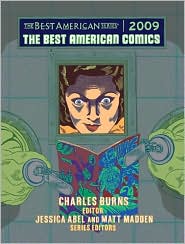This Film Is Not Yet Rated
Film #2 of our 2006 SIFF experience was Kirby Dick's This Film Is Not Yet Rated, a documentary about the MPAA ratings board.
TFINYR follows Dick as he examines why Jack Valenti has kept the MPAA's ratings board cloaked in secrecy. Convinced that the board needs more transperancy in order to be accountable to the public and to the film-makers who submit their movies, Dick hires a private investigator and then spends most of the movie trying to identify and out the current board members.
The film alludes to some really interesting thoughts on censorship and how the MPAA influences what movies get distibution (South Park's Matt Stone is particularly interesting), but all of the focus on stalking the current members detracts from learning more about the underlying issues at hand. For instance, the film focuses almost entirely on the distinctions between R and NC-17 movies. It would've been interesting to see some coverage of the difference between G and PG-13 since the ratings are in theory targeted at parents anyways, but Dick doesn't seem interested in exploring this area at all.
In a lot of ways, it seemed like Dick just had an ax to grind with the MPAA. We never get to hear any intelligent argument from the MPAA's point of view, only choice archived clips that support Dick's position. There's even a scene with Creative Common's guru Lawrence Lessig talking about the MPAA's crack-down on piracy, which while interesting (it could be a whole movie unto itself) seems to only be in the film to support the position that the MPAA is some kind of evil empire (which they probably are but still in a documentary I'd like to at least see both sides).
For all my complaints, the film still has some merit. I was unaware of the MPAA's current system and the film definitely raises some compelling arguments that the current system is flawed. For instance, I was shocked to find that the appeals board contains members of the clergy who are present when films are discussed. Similarly shocking was the fact that the appeals board is made up almost entirely of industry big wigs who represent the large studios in what surely has to be some kind of conflict of interest.
All in all not a great film, but still an interesting way to spend an evening.




0 Comments:
Post a Comment
<< Home